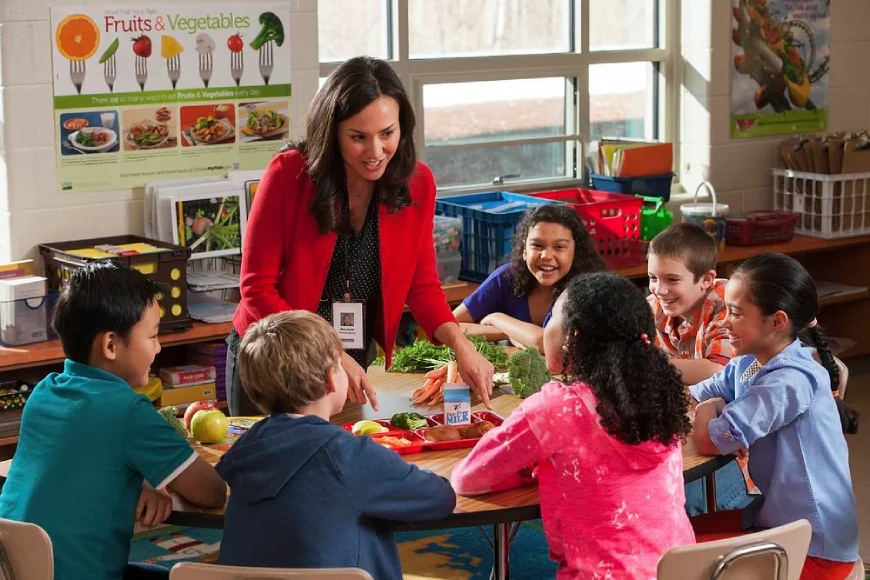
In school, education goes beyond mastering academic subjects like mathematics or languages. A key aspect of modern education involves developing social skills for school that are crucial for thriving in a complex society.
For this reason, the Galilée School, a bilingual institution in Paris, places a strong emphasis on fostering these social abilities. This process extends beyond merely following collective rules; it involves creating an environment where each student feels heard, respected, and capable of developing an empathetic understanding of others through various social awareness activities. Here's an in-depth look.
Empathy: The Foundation of Classroom Cohesion
Empathy is a fundamental ability to learn how to coexist harmoniously in class. At the Galilée School, a private and bilingual institution in Paris, specific activities are designed to raise social awareness among students.
These lessons, part of their social skills for school development, help young learners better understand their own emotions and those of others, which significantly reduces the risk of conflict. Inspired by Scandinavian educational methods, these activities foster a sense of psychological safety, allowing students to express themselves constructively and handle disagreements peacefully—an essential aspect for achieving a harmonious learning environment.
The essential role of group work in building social skills for school
Group work plays a crucial role in helping students develop the competencies needed to live well together in a classroom setting. Team projects, which often include social awareness activities, provide opportunities for students to practice effective communication, negotiation, and consensus-building. These interactions, based on active listening and respecting others' viewpoints, are central to building social skills for school in class.
Moreover, research in neuroscience confirms that peer learning is not only an effective way to acquire academic knowledge but also encourages the development of empathy. By working in teams, students learn to step outside of their own perspective and consider those of their classmates—an essential skill for successful social interactions.
Managing conflicts in the educational context
Despite the emphasis on teamwork and empathy, conflicts can still arise. With a clear set of collective rules established from the beginning, students have a solid framework for managing disagreements while showing mutual respect.
When disputes do occur, students are encouraged to express their frustrations calmly and seek common solutions. Practical workshops, such as role-playing and supervised discussions, are organized as social awareness activities to help them handle disagreements effectively.
These exercises enable students to navigate their emotions and understand the importance of dialogue in resolving issues. Learning to respond constructively to conflicts equips them with long-lasting social skills for school, both for their educational years and future roles as responsible citizens.
Developing social skills from kindergarten to middle school
Learning social skills for school is a cornerstone of student development, especially when it comes to building a cohesive classroom environment. These skills allow students to form positive relationships with their peers and integrate well into society. They include cooperation, active listening, self-respect, respect for others, and effective dispute management.
At the Galilée International School in Paris, this education is carefully tailored to the age and specific needs of students, from kindergarten to middle school, ensuring a consistent and sustainable progression in acquiring social competencies.
Kindergarten: learning to share and cooperate through social awareness activities
In kindergarten, students are introduced to community life through group games and social awareness activities. These playful exercises are valuable tools for teaching fundamental concepts like sharing, cooperation, and mutual respect.
At this early stage, emphasis is placed on recognizing and expressing emotions. Children are encouraged to verbalize their feelings and understand those of their peers, laying the foundation for essential social skills for school. This approach creates a supportive atmosphere where everyone feels valued and heard.
These first interactions, carefully guided by educators, lay the groundwork for effective social abilities, encouraging each child's personal growth in a nurturing environment.
Elementary school: strengthening empathy and conflict resolution
As students progress to elementary school, the development of social skills for school becomes more structured. Empathy and conflict management take on greater significance at this age. Learners are taught to engage in respectful dialogue, listen attentively, and work together on group projects. These activities help them learn to coexist in class in a peaceful and productive manner.
Respect for shared guidelines, such as classroom rules, is a critical lesson at this level. Role-playing exercises, reflection workshops, and guided discussions provide students with practical tools for resolving disagreements calmly and fairly. They also develop a strong sense of individual and collective responsibility, which is crucial for both academic success and broader social interactions.
Middle school: developing collective decision-making and social skills for school life
Middle school is a pivotal stage in the acquisition of social skills for school. Students are faced with more complex social scenarios and learn to navigate a diverse environment where opinions and experiences vary widely.
At this stage, teaching empathy and emotional regulation becomes even more essential. Lessons on empathy, often inspired by Scandinavian practices, are included in the curriculum to help students better understand the feelings of their peers and react positively to challenges.
Dispute resolution workshops and debates, integral parts of their social awareness activities, offer middle school students a chance to develop skills in negotiation, collective decision-making, and respectful dialogue. This process prepares them not only for future roles as engaged citizens but also for thriving in a world where social interactions are a key component of success.
Learning to live together in class is a critical aspect of ensuring students' personal and social development. This journey is built on skills like empathy, cooperation, and effective dispute management. It's a process that evolves at every stage of education, from kindergarten to middle school, emphasizing the importance of social skills for school.
However, this development does not solely rest on the shoulders of students. The active participation of the educational community is crucial in creating a structured and supportive environment.
This is why at the Galilée School, teachers, parents, and educational staff collaborate closely to establish a framework that promotes listening, responsibility, and mutual respect.
At the Galilée School, these values are central to our educational philosophy, preparing students to thrive as engaged and responsible citizens. By embedding these principles in our educational project, we aim to foster a learning environment that supports both personal growth and a strong sense of community, ensuring that our students are prepared for the complexities of modern society.

